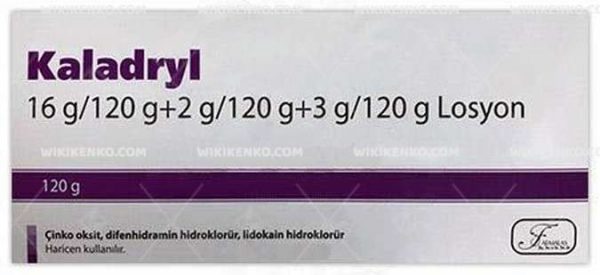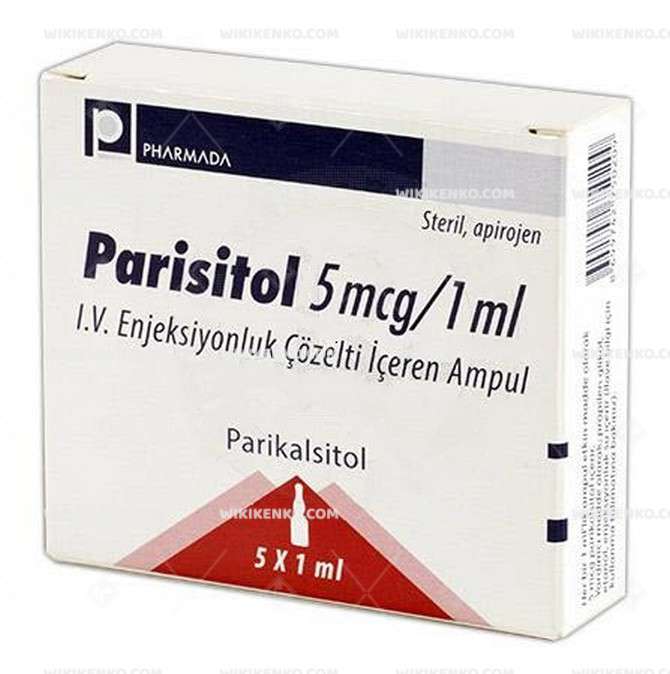Description
Ketinel Film Tablet 25 Mg is a medication used in the treatment of certain psychiatric disorders. The active ingredient in Ketinel is ketiapin, which belongs to a group of drugs known as antipsychotics. These medications are used to manage specific psychiatric conditions.
Antipsychotics are a class of drugs that work by affecting the balance of certain natural substances in the brain, such as dopamine and serotonin. By modulating these neurotransmitters, antipsychotics can help alleviate the symptoms associated with various mental health disorders.
Ketinel Film Tablet 25 Mg is indicated for the treatment of several psychiatric conditions, including major depressive episodes associated with bipolar disorder, moderate to severe manic episodes in bipolar disorder, and schizophrenia. Each of these conditions can significantly impact an individual’s quality of life, and effective treatment is crucial for managing the associated symptoms and improving overall well-being.
Composition and Presentation
Each film-coated tablet of Ketinel contains 25 mg of ketiapin, which is equivalent to 28.78 mg of ketiapin hemifumarate. The tablets are peach-colored, round, and biconvex in shape. They are available in packages of 30 and 60 tablets, providing patients with convenient dosing options.
The film coating on the tablets serves to protect the active ingredient and facilitate swallowing. This formulation helps ensure the medication is delivered effectively and efficiently to the patient’s system.
Indications for Use
Ketinel Film Tablet 25 Mg is indicated for the treatment of the following psychiatric conditions:
1. Major Depressive Episodes Associated with Bipolar Disorder:
In this condition, patients may experience feelings of sadness, pessimism, guilt, and a loss of energy. They may also have decreased appetite and insomnia.
Ketinel can help alleviate these symptoms and improve the patient’s overall mood and functioning.
2. Moderate to Severe Manic Episodes in Bipolar Disorder:
Patients with bipolar disorder may experience episodes of mania, characterized by feelings of excessive joy, excitement, and hyperactivity.
They may require less sleep, become more talkative, and have rapidly passing thoughts or ideas. Patients may also exhibit impaired decision-making, including aggressive or destructive behaviors.
– Ketinel can help stabilize the patient’s mood and manage the symptoms associated with manic episodes.
3. Schizophrenia:
Schizophrenia is a complex mental health disorder that can cause patients to experience hallucinations, delusions, and other disturbances in their perception of reality.
Patients with schizophrenia may also exhibit symptoms such as strange suspicion, anxiety, confusion, guilt, tension, and boredom.
Ketinel can help alleviate these symptoms and improve the patient’s ability to function in daily life.
It is important to note that the use of Ketinel in elderly patients with dementia is not recommended, as drugs in the same class as Ketinel have been associated with an increased risk of stroke and, in some cases, an increased risk of death in this population.
Dosage and Administration
The recommended dosage for Ketinel Film Tablet 25 Mg is generally 1 tablet (25 mg) every 8 hours, with a maximum of 3 tablets (75 mg) per day.
However, for elderly patients or those with kidney or liver problems, the starting dose should be lower, with a total daily dose of no more than 2 tablets (50 mg).
It is crucial to follow the healthcare provider’s instructions carefully when taking Ketinel. Patients should not exceed the prescribed dosage, and if they have any further questions or concerns, they should consult their doctor or pharmacist.
Onset of Action and Therapeutic Effects
The onset of action for Ketinel Film Tablet 25 Mg, like other antipsychotic medications, can vary depending on several factors, including the individual’s metabolism, the specific condition being treated, and the dosage of the medication.
While the exact time it takes for Ketinel to start working is not readily available, most antipsychotic drugs, including those containing ketiapin (the active ingredient in Ketinel), typically begin to show their effects within a few hours to a few days after administration.
It is important to note that the full therapeutic effects of such medications may not be evident until several weeks of consistent use. Patients should be advised to continue taking Ketinel as prescribed, even if they do not notice immediate improvements in their symptoms.
This is because the brain and body may require time to adapt to the medication and for the full benefits to be realized. Consistent adherence to the treatment regimen is crucial for achieving the desired therapeutic outcomes.
Interactions with Other Medications
Like any medication, Ketinel Film Tablet 25 Mg can interact with other drugs, which can alter the way Ketinel or the other medications work and increase the risk of side effects.
There are three main types of drug interactions:
1. Drug-drug interaction: This occurs when a medication reacts with one or more other drugs.
2. Drug-food/drink interaction: This happens when something the patient eats or drinks affects the medication.
3. Drug-condition interaction: This occurs when the patient has a health problem that makes it risky for them to take certain medications.
It is essential for patients to inform their healthcare providers about all the medications they are currently taking, including over-the-counter drugs, supplements, and herbal remedies. This information will help the healthcare team identify and manage any potential interactions, ensuring the safe and effective use of Ketinel.
Ketinel Film Tablet 25 Mg Storage
Proper storage of Ketinel Film Tablet 25 Mg is crucial to maintain the medication’s effectiveness and safety. Here are some general guidelines for storing the tablets:
1. Keep the medication out of the reach and sight of children to prevent accidental ingestion or misuse.
2. Store the tablets in a cool, dry place to preserve their efficacy and prevent degradation.
3. Avoid exposing the medication to direct heat and light, as these factors can cause the drug to break down and lose its potency.
4. It is best to keep the medication in its original packaging until it is time to take it, as this helps protect the tablets and provides important information, such as the expiration date and batch number.
Patients should always follow the storage instructions provided by their pharmacist or healthcare provider, as these may vary depending on the specific medication and the individual’s circumstances.
Use During Pregnancy and Breastfeeding
The safety of Ketinel Film Tablet 25 Mg during pregnancy has not been fully established. Therefore, the medication should only be used during pregnancy if the potential benefits clearly outweigh the potential risks.
It is important to note that every pregnancy starts with a 3-5% chance of having a birth defect, which is known as the background risk. Healthcare providers will carefully consider the individual patient’s circumstances and the potential risks and benefits of using Ketinel during pregnancy.
Regarding breastfeeding, it is not known whether the active ingredient in Ketinel, ketiapin, is excreted in breast milk. As a precaution, Ketinel should not be used during lactation. Most medications can be used safely during breastfeeding at the recommended dose, but there are exceptions that require caution.
Patients should discuss the use of Ketinel during pregnancy or breastfeeding with their healthcare providers, who can provide personalized guidance based on the patient’s specific situation and the latest available evidence.
Ketinel Film Tablet 25 Mg Side Effects
Like all medications, Ketinel Film Tablet 25 Mg can cause side effects, although not everyone who takes the drug will experience them. Some of the common side effects associated with Ketinel include:
1. Nervous System Disorders:
Sedation, sleepiness, dizziness, headache, attention disturbance, unsteadiness
2. Gastrointestinal Disorders:
– Dry mouth, gastrointestinal disturbance, nausea, vomiting, constipation, diarrhea, dyspepsia, epigastric distress
3. General Disorders:
Fatigue
4. Psychiatric Disorders:
Confusion, depression, sleep disturbances, paradoxical excitation, agitation, increased energy, restlessness, nervousness, euphoria, anxiety, hallucinations, insomnia, irritability
5. Cardiovascular Disorders:
Palpitations, hypotension, arrhythmia
6. Hematologic Disorders:
Blood disorders
7. Hypersensitivity:
Hypersensitivity reactions
8. Hepatic Disorders:
Liver dysfunction
9. Dermatologic Disorders:
Rash, urticaria, skin rashes, erythema, photosensitivity, pruritus, drug rash, excessive perspiration
10. Respiratory Disorders:
Dyspnea, thickening of bronchial secretions, throat tightening, wheezing, nasal stuffiness, dry nose or throat
11. Genitourinary Disorders:
Urinary hesitancy/difficulty/retention, dysuria, early menses
12. Ocular Disorders:
Blurred vision, dry eyes, diplopia
13. Metabolic Disorders:
Increased appetite, anorexia
14. Musculoskeletal Disorders:
Muscle twitching/weakness
It is important to note that this is not an exhaustive list of all possible side effects. Patients should be advised to contact their healthcare provider if they experience any other side effects not mentioned above.
Conclusion
Ketinel Film Tablet 25 Mg is a medication used in the treatment of various psychiatric disorders, including major depressive episodes associated with bipolar disorder, moderate to severe manic episodes in bipolar disorder, and schizophrenia. The medication contains the active ingredient ketiapin, which belongs to the class of antipsychotic drugs.
The tablets are available in packages of 30 and 60, and the recommended dosage is generally 1 tablet (25 mg) every 8 hours, with a maximum of 3 tablets (75 mg) per day. However, for elderly patients or those with kidney or liver problems, the starting dose should be lower, with a total daily dose of no more than 2 tablets (50 mg).
Ketinel can interact with other medications, and it is essential for patients to inform their healthcare providers about all the drugs they are currently taking. Proper storage and handling of the medication are also crucial to maintain its effectiveness and safety.
The use of Ketinel during pregnancy and breastfeeding should be carefully considered, as the safety of the medication in these situations has not been fully established. Patients should discuss the potential risks and benefits with their healthcare providers.
Ketinel Film Tablet 25 Mg can cause a variety of side effects, ranging from nervous system disorders to metabolic and musculoskeletal issues. Patients should be aware of these potential side effects and report any concerns to their healthcare providers.

















Reviews
There are no reviews yet.